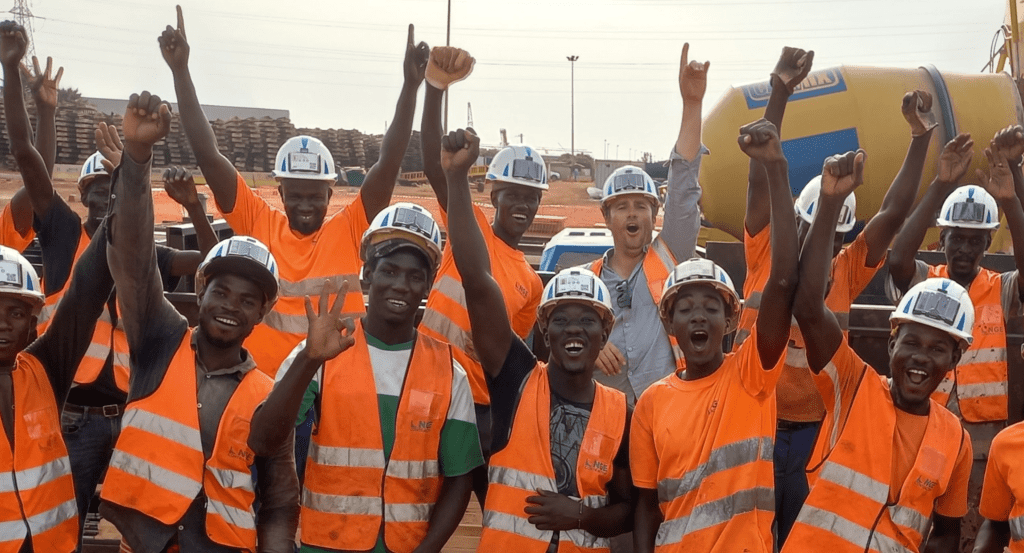Senegal’s construction industry is facing a severe crisis, with many projects stalled and companies struggling with unpaid government debts. This downturn comes despite the government’s pledges to reform the economy and boost local businesses. While investors and businesses once had high hopes for the sector, the reality on the ground paints a different picture.
Construction companies, particularly those involved in public projects, have reported a drastic drop in contracts and revenue. Many are cutting jobs or shutting down operations due to the financial strain. Senegal’s economy, which relies heavily on infrastructure development, is now feeling the impact of these disruptions.
Government Debts Cripple the Construction Sector
One of the biggest challenges facing Senegal’s construction industry is the government’s failure to pay its debts. The Consortium of Senegalese Enterprises (CSE), a major construction firm, has seen its order book decline dramatically from 140 billion CFA francs to just 20 billion CFA francs (approximately $231 million to $33 million). As a result, CSE has had to lay off a significant portion of its workforce, cutting employee numbers from 3,000 to 1,700.
Souleymane Camara, a trade unionist representing construction workers, has expressed concern over the growing unemployment rate in the sector. He warns that if the government does not act quickly to resolve these financial issues, more workers will lose their jobs, and companies will continue to suffer.
Several other firms in the construction industry are also facing similar difficulties. Many have completed projects but remain unpaid for months, leaving them unable to pay suppliers and workers. This has created a chain reaction, affecting not just construction companies but also industries linked to construction, such as cement manufacturing, steel production, and transport services.
DON’T MISS THIS: NNPC Revives IPO Plans, Seeks Advisers for Landmark Listing
Reform Promises and Economic Realities
President Bassirou Diomaye Faye, who took office in April 2024, promised to bring economic and political reforms to Senegal. His administration pledged to end economic dependence on foreign entities and to prioritize local businesses. However, despite these assurances, the construction sector continues to decline.
At the beginning of 2024, President Faye revealed that Senegal’s fiscal situation was much worse than previously reported. He stated that the country had “almost non-existent” fiscal flexibility, blaming the previous administration for misrepresenting financial indicators. The Court of Auditors later confirmed that Senegal’s outstanding debt accounted for 99.67% of its GDP—far higher than earlier estimates.
With such financial constraints, the government has been unable to release funds for construction projects. This has led to more companies struggling, further deepening the economic crisis in the sector.
Project Suspensions and Land Audits Add to Woes
Adding to the industry’s struggles, the government recently initiated a land audit, which has led to the suspension or complete halt of several projects, particularly in Dakar, the country’s real estate hub. While the audit is intended to promote transparency and prevent corruption, its immediate effect has been the slowdown of construction activities.
Business owners like Kader Ndiaye, who operates a building company, support the need for accountability but argue that these delays are causing financial distress for many in the industry. With construction activities slowing down, companies are left with no choice but to cut costs, leading to more job losses.
The National Statistics Agency has reported a 2.6% decline in construction sector turnover compared to 2023. This downturn is expected to continue unless urgent measures are taken to address the financial crisis and revive stalled projects.
The Future of Senegal’s Construction Industry
Despite the grim outlook, there is still hope that the government will take action to resolve these issues. Industry experts are calling for immediate steps to clear outstanding debts and fast-track ongoing projects. Investors and businesses are also pushing for policies that will encourage financial stability and attract foreign and local investments into the sector.
As Senegal navigates these economic difficulties, the construction industry remains a key pillar of the country’s development. Addressing the current challenges will not only stabilize businesses but also create jobs and stimulate growth in other sectors. However, without swift action from the government, the industry’s recovery could be slow and painful.
For now, stakeholders in Senegal’s construction industry can only wait and see if the promised reforms will bring the relief they desperately need.




















